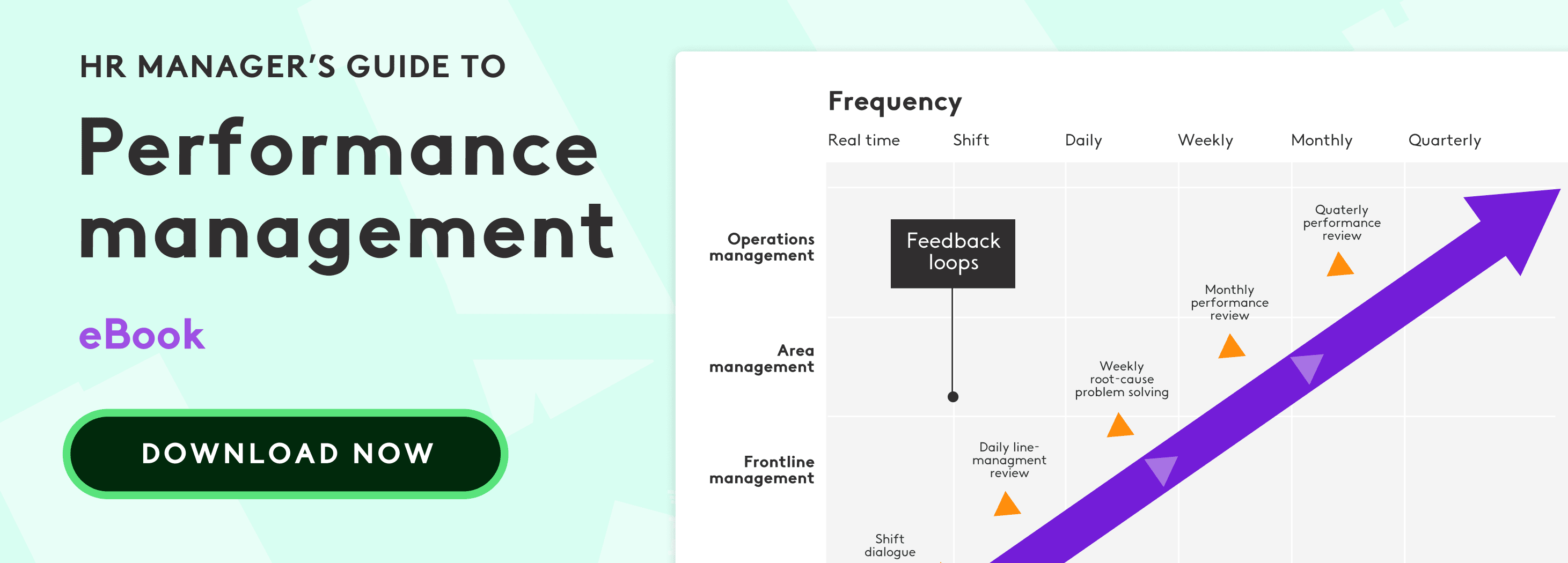Company culture: what is it and what types are there?
%20(1).jpg)
Company culture is implicit in every facet of a company: from the logo to the language it uses. When we talk about company culture, we are referring to the values, beliefs, symbols, and customs that define an organisation.
Consequently, it has a huge impact on employees and work processes, making it vital to create a positive company culture and understand the extent of its reach. Below, we will explain in detail what this involves and the benefits it can bring, with some practical examples.
What is company culture?
Company culture is what makes the members of an organisation identify with their company. It comprises the set of values and beliefs they share, as well as the ways they act and think.
Nowadays, when we read a job vacancy, we don’t just focus on the technical details of the job description or the salary. Most of the time, companies talk about day-to-day details that will be key to employee motivation. Some examples include the permission to take pets into the office, or the fact that on Thursdays they do some sort of sport, there are meditation rooms or employees can work remotely once a month.
These types of incentives make the company either more or less appealing and will attract the type of employee that will fit in well with the team.
Why is company culture important?
To use a simple simile, company culture is like the foundations that are laid at home during our upbringing. We know the rules, the values, what is allowed and what constitutes a serious error in this setting. Just like we know which celebrations are important and the traditions that play an important role.
This forms part of our identity and creates a sense of belonging to the company culture. Therefore, there are two fundamental aspects to consider when designing what the company culture will look like:
- Communicate the aim: to strengthen the organisation and help retain talent, it is essential to clearly convey the purpose of the company culture.
- Be flexible: the company culture needs to be flexible so it can change and adapt to new challenges. In fact, the pandemic has been an example of how organisations have been forced to rethink their way of working.
It is particularly important to emphasise the importance of the company culture for the millennial generation. One of the greatest challenges is to maintain high levels of motivation to avoid loss of talent.

Millennials do not aspire to hold the same job for the rest of their lives. However, they do believe it is essential to develop a profession that allows them to find a balance between their work and home lives, with opportunities for growth, in which they can acquire new expertise. To sum up, millennials value company culture that matches their own beliefs and this can be a decisive factor when recruiting top talent.
The benefits of having the right company culture
When company culture is well thought out and has a positive impact on employees, it is important to maintain it over time.
Below, we discuss some of the elements that benefit from a good company culture:
- Recruitment processes: in recruitment and selection company culture can be that element of added value that persuades the candidate to accept an offer or not. Furthermore, the more company culture is recognised, the better the applications for job vacancies will be.
- Onboarding: during the onboarding process, new employees will adapt more quickly as they will be able to understand how the dynamics, processes and communication among teams work.
- Sense of belonging: employees develop a sense of belonging which goes beyond the professional. This helps retain talent without salary being the only attraction.
- Reduction of absenteeism: a clear company culture that works has a huge impact on absenteeism figures. Workers feel more motivated to turn up for work and have fewer complaints, as they share the company’s values and vision.
- Leadership positions: the position of team leaders and managers will lead to clearer direction for the whole team, as their superiors are able to convey values that they believe in.
- Teamworking: collaboration and teamwork will be reinforced thanks to the confidence that has been generated. There is, as a result, greater participation in meetings and improved productivity.
- Customer service: company culture has a considerable impact on the end client as it is conveyed through direct contact between the salesperson and consumer.
- Flexibility: when organisational culture has been well designed it will be easier to implement changes because higher employee motivation also increases their flexibility.
Types of company culture
There are a multitude of different company cultures having an impact on the work environment, so it is difficult to categorise them in such a way that encompasses all their characteristics. In this article, we will group them according to how rigid or flexible their processes are.
Authoritarian culture
This type of company culture is the opposite of ‘horizontal culture’. In this case, decision-making power is held by a few managers, meaning supervision of work is fundamental for any kind of task to get done.
This can be demotivating for the rest of the team and can have repercussions in terms of a larger workload for all those involved in the process, leading to bottlenecks in all activities.
Bureaucratic culture
Bureaucratic culture is characterised by strict process methods of how things should be carried out. Here, it is important to define in advance the level of freedom and efficiency that this method entails.
In companies where safety is important due to the risk factors of the work involved, it can be a very useful culture, as it guarantees the wellbeing of employees and quality of the processes. However, in other sectors it can be demotivating for employees and convert every small adjustment into a thorny issue.
Goal-driven culture
When we talk about goal-driven culture, we must highlight two key aspects: competition and participation. Employee focus will be on achieving success when they reach their set targets.
Although this type of company culture can deliver constant stimulus for employees, we also need to take into account the levels of stress and frustration that can surface when they do not manage to achieve their objectives. It is not only a case of a potential loss of productivity; there are also implications for the mood of the workplace which can sometimes be contagious.
Motivational culture
Company culture based on motivation puts the happiness of employees at the epicentre of the organisation. It is based on the belief that highly motivated teams will achieve better results without the need to set targets, but rather as a consequence of good performance and team working.
If we think about a sports team, we know that the players’ motivation depends a large part on the club’s values, but also on the coach’s capacity to transmit these beliefs to the whole team, from the veteran member to the new recruit. As a result, in this type of company culture it is important to work on employee communication, by giving greater responsibilities and promoting recognition of the value of their work. The more secure they feel when doing their job, the easier they will find it to delegate tasks and allow the team to develop. For this, implementing a good performance review system, to identify each employee’s skills and talent, is essential.
The elements of company culture
These are the five most important elements of company culture:
- Vision: the foundation of company culture, the reason that motivates everyone to achieve the set goals.
- Values: the guidance relating to behaviour that workers can take pride in.
- Organisational structure: how the company is organised will have an impact on the work culture and define its flexibility and speed.
- Human talent: workers feel more affinity for a company with a good company culture, thereby improving talent retention.
- Company responsibility: the actions companies put into practice make their company culture coherent and strengthen their image.
Top organisations for company culture
These are some examples of companies that have become popular not only for their services, but also their way of working.
For a company like Google, constant technological innovation is the lifeblood of the company. Its employees progress according to the quality of their ideas and tech knowledge. In fact, one of its idiosyncrasies is that 20% of the working day is dedicated to personal projects, which have occasionally turned into some of the company’s revolutionary ideas.
One of the tools Google used to encourage this creativity was a meeting every week (TGIF, Thank God It’s Friday) that all its employees around the world could take part in.
Facebook needs no introduction when it comes to social networks, but some of its lesser-known values have made it a company that is appreciated by its employees.
Equality in teams is a fundamental aspect of its working structure. So, it tries to encourage as much participation as possible in decisions, promoting horizontal structures with no difference in workspaces. The offices feature an open and transparent design that supports camaraderie and collaboration.
For example, the company’s conference rooms are named by employee vote and it recently implemented a virtual reality system for internal meetings.
Netflix
Reed Hastings, one of the founders of Netflix, wrote the document Netflix Culture: Freedom & Responsibility, together with his talent director, Patty Mccord, in which he signposts some of the reasons for its business success. For example, they:
- encourage independent decision-making by employees.
- are extraordinarily candid with each other.
- avoid rules.
Ikea
All Ikea employees have a copy of the founder’s book: The Testament of a Furniture Dealer. In this book he captures the business philosophy: self-criticism, humility, simplicity and perseverance at work.
One of Ikea’s most important values is its environmental responsibility. To succeed in its objectives in this area it has focused on using reusable and recyclable materials and offering healthier and more sustainable food options.
Coca Cola
The Coca Cola mission can be summarised in two fundamental aims: refresh the world and inspire moments of optimism and happiness. Qualities that are reflected in its company culture and echoed by the document Manifesto for Growth, in which the company stated that it would work towards being a more direct and transparent company.
Also, bearing in mind that the company stretches across more than 200 countries, as an employee incentive it implemented a pension plan and health insurance to improve their quality of life.

